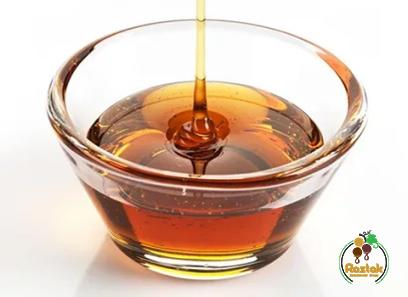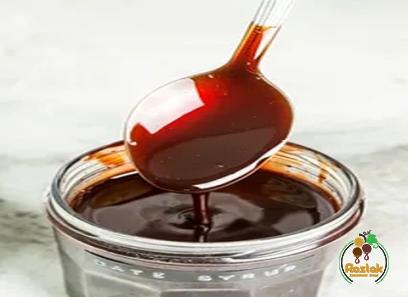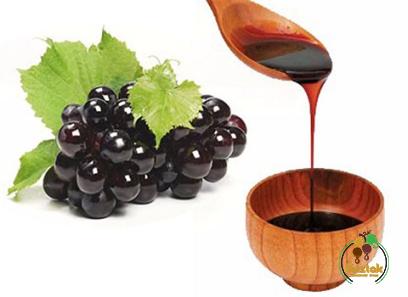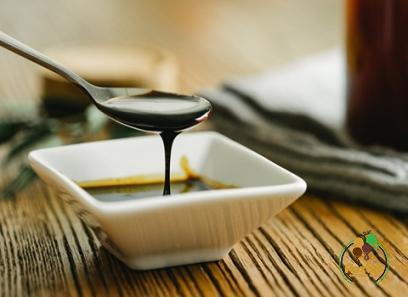One such substitute is grape syrup, derived from concentrated grape juice. This article aims to shed light on grape syrup calories and provide essential information to those seeking healthier sweetening options. What is Grape Syrup? Grape syrup is made by extracting the juice from grapes, then reducing it to a concentrated syrup consistency. Unlike refined sugars, grape syrup retains the natural compounds found in grapes, including vitamins, minerals, and antioxidants. However, it is crucial to consider the calorie content when incorporating grape syrup into your diet. Understanding the Calorie Content: Generally, the calorie content of grape syrup depends on the concentration of the syrup and the method used to extract and process it.

.
 On average, grape syrup contains approximately 320 calories per 100 grams, making it a high-calorie sweetener. However, it is essential to keep portion sizes in mind when using grape syrup as a sugar substitute. Benefits of Grape Syrup: 1. Natural and Unrefined: Unlike processed sugars, grape syrup is a natural sweetener that retains the nutritional benefits of grapes. It contains significant amounts of vitamins C and K, as well as antioxidants that help fight inflammation and oxidative stress in the body. 2. Lower Glycemic Index: Grape syrup has a lower glycemic index (GI) compared to refined sugars.
On average, grape syrup contains approximately 320 calories per 100 grams, making it a high-calorie sweetener. However, it is essential to keep portion sizes in mind when using grape syrup as a sugar substitute. Benefits of Grape Syrup: 1. Natural and Unrefined: Unlike processed sugars, grape syrup is a natural sweetener that retains the nutritional benefits of grapes. It contains significant amounts of vitamins C and K, as well as antioxidants that help fight inflammation and oxidative stress in the body. 2. Lower Glycemic Index: Grape syrup has a lower glycemic index (GI) compared to refined sugars.
..
 This means it causes a slower and more controlled rise in blood sugar levels, making it a viable option for individuals monitoring their blood sugar levels or managing conditions such as diabetes. 3. Rich Flavor Profile: Grape syrup offers a distinct, rich flavor that adds depth to various recipes. Its natural sweetness can be an excellent addition to baked goods, salad dressings, sauces, or even as a topping for pancakes and waffles. Incorporating Grape Syrup Into Your Diet: While grape syrup can be a healthier alternative to refined sugars, moderation is key. Here are some tips for incorporating grape syrup into your diet in a balanced way: 1. Control Portions: Given its calorie content, it is essential to use grape syrup in moderation. Be mindful of portion sizes and consider using it as a flavor enhancer rather than a primary sweetener.
This means it causes a slower and more controlled rise in blood sugar levels, making it a viable option for individuals monitoring their blood sugar levels or managing conditions such as diabetes. 3. Rich Flavor Profile: Grape syrup offers a distinct, rich flavor that adds depth to various recipes. Its natural sweetness can be an excellent addition to baked goods, salad dressings, sauces, or even as a topping for pancakes and waffles. Incorporating Grape Syrup Into Your Diet: While grape syrup can be a healthier alternative to refined sugars, moderation is key. Here are some tips for incorporating grape syrup into your diet in a balanced way: 1. Control Portions: Given its calorie content, it is essential to use grape syrup in moderation. Be mindful of portion sizes and consider using it as a flavor enhancer rather than a primary sweetener.
…
 2. Seek Expert Advice: If you have specific dietary needs or health concerns, consult with a healthcare professional or nutritionist to determine the appropriate use of grape syrup in your diet. 3. Combine with Other Healthy Ingredients: Pairing grape syrup with nutrient-dense foods, such as fresh fruits, whole grains, or natural nut butter, can create a balanced and satisfying meal or snack. 4. Experiment with Recipes: Explore various recipes that incorporate grape syrup creatively. This can help you discover new and delicious ways to enjoy this natural sweetener without compromising your health goals. Conclusion: Grape syrup provides a natural and unrefined alternative to traditional sugars, offering a rich flavor profile and potential health benefits. While it is a high-calorie sweetener, with mindful usage, it can be a valuable addition to a health-conscious individual’s kitchen pantry. Remember, moderation is key, and seeking guidance from experts can help you make the most informed decisions about incorporating grape syrup into a balanced diet.
2. Seek Expert Advice: If you have specific dietary needs or health concerns, consult with a healthcare professional or nutritionist to determine the appropriate use of grape syrup in your diet. 3. Combine with Other Healthy Ingredients: Pairing grape syrup with nutrient-dense foods, such as fresh fruits, whole grains, or natural nut butter, can create a balanced and satisfying meal or snack. 4. Experiment with Recipes: Explore various recipes that incorporate grape syrup creatively. This can help you discover new and delicious ways to enjoy this natural sweetener without compromising your health goals. Conclusion: Grape syrup provides a natural and unrefined alternative to traditional sugars, offering a rich flavor profile and potential health benefits. While it is a high-calorie sweetener, with mindful usage, it can be a valuable addition to a health-conscious individual’s kitchen pantry. Remember, moderation is key, and seeking guidance from experts can help you make the most informed decisions about incorporating grape syrup into a balanced diet.











Your comment submitted.